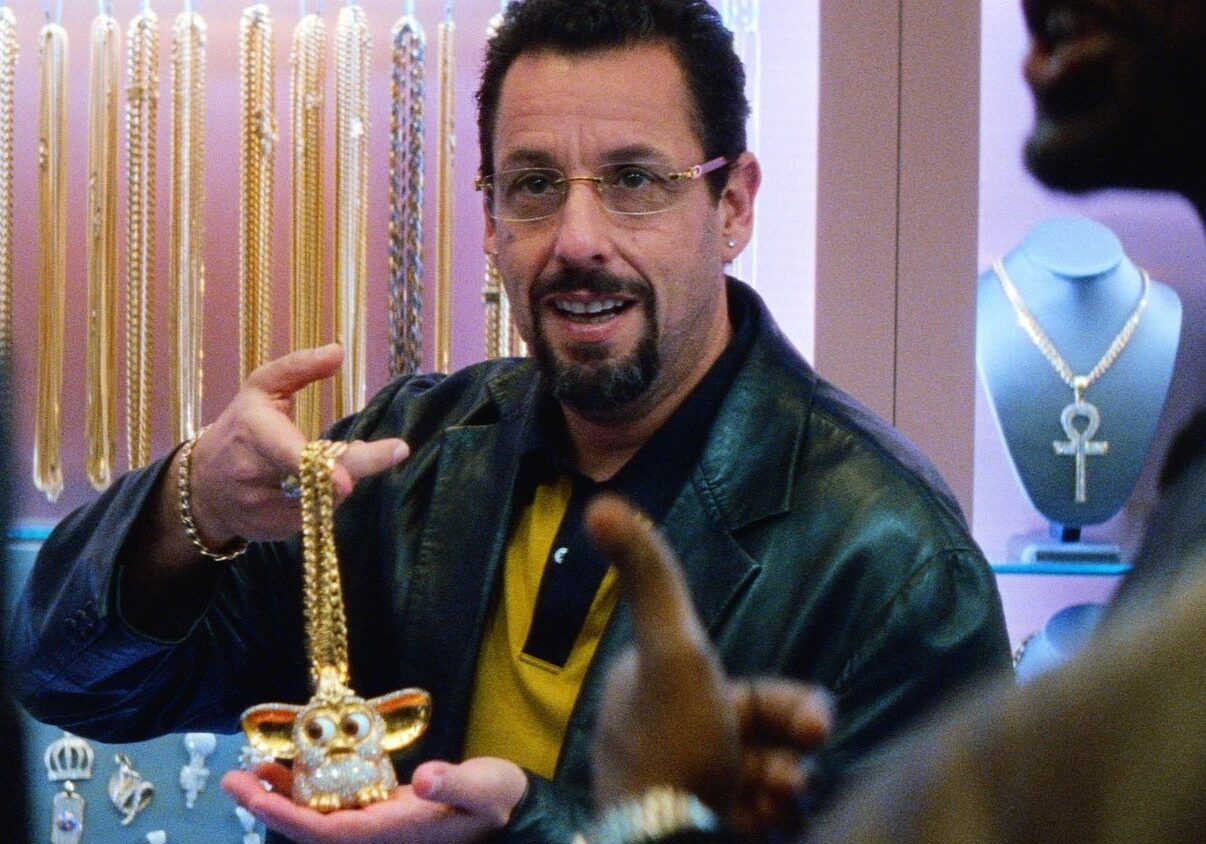They’re Not Even Pretending Anymore
To learn more about Epsilon Theory and be notified when we release new content sign up here. You’ll receive an email every week and your information will never be shared with anyone else.
Continue the discussion at the Epsilon Theory Forum
The Latest From Epsilon Theory
This commentary is being provided to you as general information only and should not be taken as investment advice. The opinions expressed in these materials represent the personal views of the author(s). It is not investment research or a research recommendation, as it does not constitute substantive research or analysis. Any action that you take as a result of information contained in this document is ultimately your responsibility. Epsilon Theory will not accept liability for any loss or damage, including without limitation to any loss of profit, which may arise directly or indirectly from use of or reliance on such information. Consult your investment advisor before making any investment decisions. It must be noted, that no one can accurately predict the future of the market with certainty or guarantee future investment performance. Past performance is not a guarantee of future results.
Statements in this communication are forward-looking statements. The forward-looking statements and other views expressed herein are as of the date of this publication. Actual future results or occurrences may differ significantly from those anticipated in any forward-looking statements, and there is no guarantee that any predictions will come to pass. The views expressed herein are subject to change at any time, due to numerous market and other factors. Epsilon Theory disclaims any obligation to update publicly or revise any forward-looking statements or views expressed herein. This information is neither an offer to sell nor a solicitation of any offer to buy any securities. This commentary has been prepared without regard to the individual financial circumstances and objectives of persons who receive it. Epsilon Theory recommends that investors independently evaluate particular investments and strategies, and encourages investors to seek the advice of a financial advisor. The appropriateness of a particular investment or strategy will depend on an investor’s individual circumstances and objectives.









Wow, I didn’t realize how Burns caved to Nixon. I do remember my professor in grad school revering the guy. I wonder what he thinks now?
But a question Ben, Powell is an independently wealthy man with many years in the private sector, probably used to high pressure.
Burns spent his years in the sheltered world as an academic, so perhaps Powell is more immune to any White House bullying?
Anyway, I hope so.
I don’t think Burns then or Powell now thought of themselves as “caving”, even though that’s exactly what it seems like to us. Instead, and you see this SO OFTEN when people get close to charismatic people like Trump and Nixon (and yes, both Trump and Nixon are EXTREMELY charismatic, particularly to other powerful people), Burns then and Powell now truly believe their actions are in the best interests of the country. I think they truly believe it would be a disaster if a Democrat gained the White House and started spending like there’s no tomorrow. Neither Nixon nor Trump inherited their Fed Chair … they picked them. There’s no daylight between Trump’s view of the proper political aims of monetary policy and Powell’s view of the proper aims - it’s all in service to Capital and its anointed representative now sitting in the White House.
My speculation for the near to medium term is that money will be kept loose to keep the asset bubble afloat. The resulting inequality and instability, plus Trump, will sweep the Democrats into power, one way or another (i.e. via an asset bust and economic crash, or via the middle class feeling left out and stuck in bad jobs.) Then money will really flow to the masses, and we’ll have the inflation required to diminish the debt and reset the whole system.
This article points to the Achele’s Heel of the entire system: the elites are incentivized to destabilize their own system, one way or another. Thank you. I didn’t know the discussions were this frank.
The classic model of the cycle is that, after a financial bust, you have deflation to help protect the reputation of elite-issued money and debt by placing the pain of adjustment squarely on the shoulders of the rest of the population. After the people sober up from the excesses of the previous boom, start respecting money by charging less and working harder, you can start to have inflation, and the ‘improved’ qualities of the work force will help minimize the degree of inflation required to stabilize the system for the long haul.
When the system is finally stable and the economy generating its own growth, you can start the Prosperity! narrative, and the whole cycle restarts.
All of this may sound natural and morally fine (note that the modern Western system survived 600 years by tacking as close to nature and morality as possible, rather than defying them openly.) The trouble is that the driving force at the very center is a command system, rather than truly free market forces. This is what causes the above-mentioned incentives and the major problems of humanity. And, let’s not mince words, it’s by design, to benefit the few, while most of the rest of us don’t understand how money really works. (What is great about this space is the small step it takes to make people a little more aware.)
The destination (inflation) is known but the path there is mighty fluid. In November-December it looked like we would get real deflation first. Growth is slowing, parts of Europe are entering recessions, China is slowing.
But then Powell sees the Ghost of Feds Past (Powell) in the mirror of his room in his lonely ivory perch. Adding to Ben’s comments below about the importance of charisma, there are probably other things in play here like ‘Seeing Behind the Curtain’ - which it appears the ECB did as well while pretty rotten economic data keeps coming in, particularly in Europe (and Korea). There’s a saying that I will mangle - “Don’t stare into the abyss too long because it will stare back at you”. This is the real or imagined effect here - its sort of like a story of “Seeing Behind the Curtain” leads to “I Cannot Unsee This” which leads to “Stockholm Syndrome” which leads to “Charisma and Gaslighting” and then you are just another ghost of the long line of your predecessor Fed Governors.
Powell goes dovish, Europe freaks out as their data worsens (and want to join the crowd), and China launches a fission bomb of credit stimulus in January and we reflate FAST.
It’s possible this is the same path that we thought would emerge but more slowly back in the Oct- Dec period. Just accelerated x 10. I see less people on both sides of the aisle complaining about Trump’s oil tweets, his USD tweet today, him suggesting ANYTHING in he way of a Chinese trade deal is negotiable (Meng Wanzou). Have we all been gaslighted, or is everyone simply too addicted to #SPXNEWHIGHS ? My gut says both, but I think there are other things at play here too.
Back to the MMT vs Supply Side/Fed buys everything suggestions - it’s likely we get continued slowing in the real economies of the US, Europe and China. In the US, the comps are tough re: base effects from the Trump tax cuts. Lag effects of actual and implied effective borrowing rates are real. though this will fade. Do we deflate before we inflate? It’s hard to say, certainly inflation data has been soft globally, but we need to focus on the rate of change in real time. The economy (inflation) impacts of something like MMT are years away. The market (asset prices) impacts of the Ghost of Feds Past are happening now in addition to the permanent state of asset prices since QE forever.
Happy to hear any predictions.